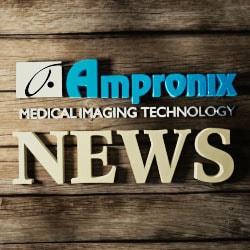Over a year since the International Summit on Human Gene Editing and the panel reassess its stance
Orange County, CA - February 15th 2017 - In a report published Tuesday from the National Academy of Sciences (NAS) and the National Academy of Medicine, the US scientific committees have decided to rescind their previous stance on germline editing. Though still heavily regulated, this is a large shift in thinking from the International Summit on Human Gene Editing held in December 2015, where germline editing was said to be an "irresponsible" field of research until safety regulations and social consensus could be satisfied.
The report outlines their new stance, which sanctions editing that’s designed to preempt babies from inheriting genes that cause “serious diseases and disability.” This will only be available in instances where there is no “reasonable alternative.”
Though much is still in the air, this shift in ruling from these US scientific committees opens the door for new technology made possible by the CRISPR-Cas9. The CRISPR allows researchers to edit the genetic material of the human genome, taking out and replacing lengths of DNA. Human genome editing clinical trials are already being planned to rectify diseases caused by single gene mutations. Concerns regarding this means of fighting illness have some worried about the effects that will be passed to offspring. Problems such as intended mutation, that wouldn’t become palpable until after the embryo reaches maturity. Concerns have also been raised about the preciseness of the CRISPR. Any lack of precision in its cutting could be damage the DNA and affect the child in an unexpected manner.

Other critics fear this technology could be used for human augmentation, leading to a world where the privileged are able to bestow their children with biological advantages. To address these concerns the report proposes the gene-editing techniques are to be used exclusively in treating or preventing disease or disability. Though still under speculation in its plausibility, the report states the technology should not be used for human “enhancement” of any kind, including physical strength, appearance, or intelligence.
The Food and Drug Administration is still currently prohibited from using federal money to support research that would produce a genetically modified offspring, however in other countries such studies are currently ongoing. Researchers in China have been laying the groundwork for the research in editing human embryos without the intent to gestate them.
“If we have an absolute prohibition in the United States with this technology advancing, it’s not like it won’t happen,” said R. Alta Charo, a bioethicist at the University of Wisconsin-Madison and head of the panel that wrote the report.
The committee has released a statement on the practice of gene editing of human reproductive cells specifying that although it, "must be approached with caution, caution does not mean prohibition.”
To read the report click here.
Contact Ampronix:

Email: info@ampronix.com
International Sales: +1 949-273-8000
Domestic Sales: 1800-400-7972 for US and Canada
Follow Us:
Share This Article:
View our Product Catalog Online Here
About Ampronix
Ampronix is a renowned authorized master distributor of the medical industry's top brands as well as a world-class manufacturer of innovative technology. Since 1982, Ampronix has been dedicated to meeting the growing needs of the medical community with its extensive product knowledge, outstanding service, and state-of-the-art repair facility. Ampronix prides itself on its ability to offer tailored, one-stop solutions at a faster and more cost-effective rate than other manufacturers. Ampronix is an ISO & ANSI/ESD certified facility. To learn more go here.

Over a year since the International Summit on Human Gene Editing and the panel reassess its stance Orange County, CA – February 15th 2017 – In a report published Tuesday from the National Academy of Sciences (NAS) and the National Academy of Medicine, the US scientific committees have decided to rescind their previous stance on germline editing. […]



